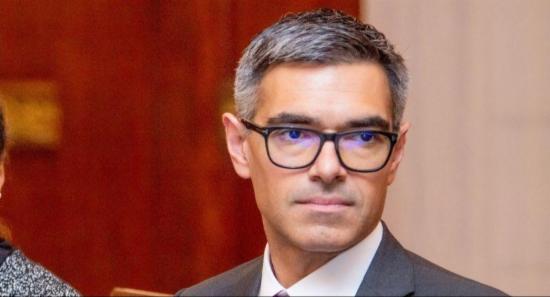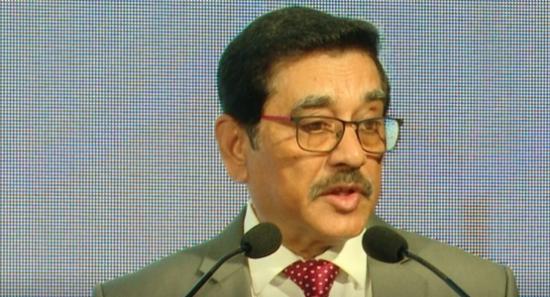.webp)

4.8 Billion US Dollars of debt due next year has been taken by the government in power: Dr.Harsha De Silva
COLOMBO (News 1st) - Sri Lanka must repay US$ 4.8 billion as external foreign debt next year. This is thus far, the largest debt repayment in the history of Sri Lanka.
As per Central Bank statistics, outstanding central government debt increased to Rs. 12,863.5 bn by the end of August 2019.
Accordingly, the total debt figure includes the domestic debt of Rs. 6,523.6 bn and total outstanding foreign debt of Rs. 6,339.9 bn, in other words, approximately US$ 35 billion. The Central Bank recently said, foreign debt worth US$ 4.8 billion must be repaid next year.
How will the government repay this?
As per Central Bank statistics, Sri Lanka currently maintains gross official reserves worth US$ 7.5 billion, equivalent to 4 and a half months of imports.
If not the government can fasten the process to increase foreign direct investments.
However, economists point out, the government will have to obtain more debt, to repay the current debt.
UNP MP Dr Harsha De Silva:
"I am not sure whether the government is trying to repay this debt with our foreign reserves. But if they do this, it is wrong.
The government will find it hard to raise debt, due to negative ratings. Fitch has already revised the government's credit outlook to negative. The government will have to pay a higher interest, due to the increase in risk.
However, on the positive side, the government only has to repay the largest instalment in October next year. In terms of external debt repayment, the government will not have a major issue during the first 9 months of next year."
However, co-cabinet spokesperson Dr Bandula Gunewardena countered that repaying this loan will not be difficult.
Dr Bandula Gunawardane, co-cabinet spokesperson requested not to worry and the department in the Central Bank for debt management will handle the debt accordingly.
What will be the Central Bank's plan to meet its external debt obligation in 2020?
Dr Nandalal Weerasinghe of the Central Bank stated that the government will come to a decision on how the debt will be paid. He added that based on that decision they will decide how much they will loan as commercial loans, how many debt securities they will have to issue.
He went on to note that the new government will devise a plan to pay long term and mid-term debts. He further added that the government will have to take loans to pay off the debt and the government will also have other alternatives such as Samurai bonds and Sovereign bonds.
Against such a backdrop, the government announced several tax concessions in the recent past.
International rating agencies point out, such tax concessions will result in lower state revenue, and the repayment of debt will be a challenge to the government.
The new government has also taken measures to provide 100,000 jobs in the state sector for untrained youth and to implement social welfare programs such as Sapiri Gamak.
Economists point out, such measures will further increase state expenditure.
UNP MP Dr.Harsha De Silva stated that when state expenditure increases from one end and state revenue declines from the other, anyone knows this will be a problem to the government.
He went on to note that if the government recruits more employees and introduces tax concessions, while state revenue is declining, the government will no doubt, face a major issue.
Economist Sanjeewa Fernando:
"When there is a loss in revenue, the budget deficit increases. This deficit also gets added to the total debt stock.
Now the government may raise funds through a Samurai or Panda bond. A sovereign bond can only be issued after June. Even though they repay the US$ 4.8 billion, the government must introduce trade reforms, and increase exports as a percentage of GDP, if they are to sustain the country's economy."
UNP MP Dr.Harsha De Silva noted that when the incumbent government was in power previously, a number of loans obtained were not registered in the accounts of the general treasury and they were recorded in the books of individual state institutions such as the UDA and Water Board.
MP added that it was the correct procedure and later all loans obtained through individual state institutions were collected as one and recorded in the books of the general treasury.
He added that the debt repayment due next year were all obtained when they were in power.
Other Articles
Featured News





.png )






























.gif)